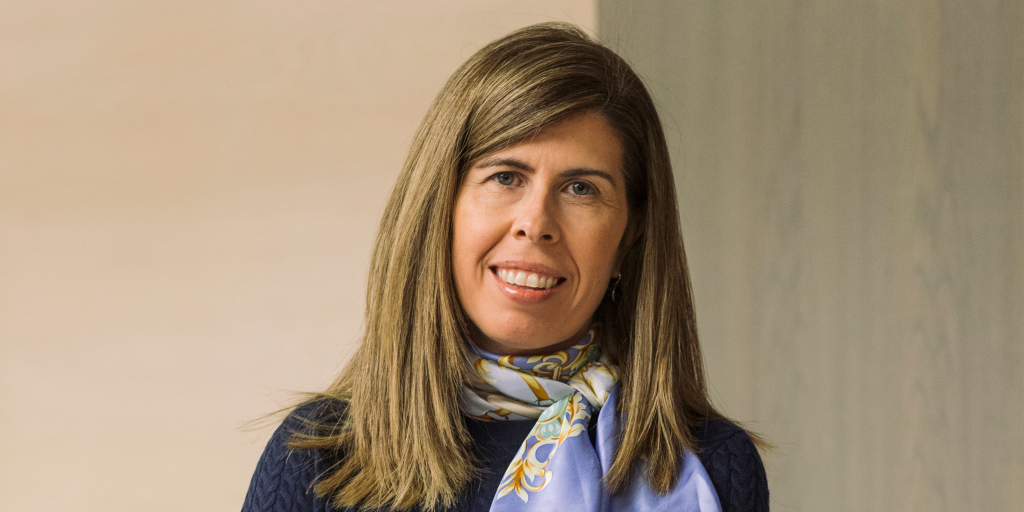25 February 2022

Equipos&Talento interviews Ainhoa Jauregui, Corporate Director of Planning and member of Cecabank's Steering Committee, on the occasion of the Empowering Women's Talent initiative.
At the end of 2018, she conducted a diagnosis of the internal situation in order to improve talent management. The entity has attained parity in the workforce with 51% women and 49% men. Women account for 38% of the members of the Steering Committee, for 40% of the executives, and 52% of internal promotions have gone to women. Cecabank has designed specific training programmes for the equality committee and has created the post of equality agent. It has also obtained the EFR Certificate (Family Responsible Company) as proof of its commitment in this area and, in the field of training, it has given courses for the development of female leadership, executive mentoring with a vision of diversity, an equality plan that is updated in accordance with the regulations in force at all times, work and family life balance, and a code on sexual harassment and harassment for reasons of sex.
You were the first woman to become a member of Cecabank's Steering Committee. Now there are more of you, but tell us about that stage, that decision?
I was actually the second woman to join the steering committee, but as one of the pioneers in that and other relevant committees in the institution, you initially tackle the situation with a great sense of responsibility, for yourself and for those who may come after you, but with the conviction to demonstrate that you are going to measure up.
Cecabank's gender activity is aligned with the United Nations Sustainable Development Goal 5: achieve gender equality. Where are you in terms of progress and results?
In recent years it has been one of the areas of focus and growth. We have worked on improving the pay gap data, on parity in the Steering Committee and the management team, and on raising awareness and sensitising the workforce through training actions. As proof of this commitment, for the first time we have included the promotion of diversity as a line of work in our 2022-2024 Strategic Plan.
Of all the initiatives you have launched so far, which ones would you highlight?
The truth is that many interesting activities have been undertaken, but the programme of talks by women from outside our usual environment seems to me to be very enriching. Knowing what has been done and is being done in companies and organisations of all kinds and accessing the personal experience of other women is very interesting.
What do you see as the main barriers to the development of women's leadership?
In my opinion, one of the main barriers are those that one imposes on oneself. Thinking that taking on a leadership position will take away from your personal life, or that there will be someone else who can offer more. This mental barrier is the first one that needs to be overcome, with the example of other female colleagues.
What biases and stereotypes do you encounter or have you encountered most often?
I would say that the most frequent biases and stereotypes are still those associated to maternity and all its consequences, such as concerns over availability, the fact that when work-life balance measures are approved, in some areas, women are still the main target group.
Do you think there is a female leadership style? What can women offer in terms of differential value in management or leadership positions?
Well, the truth is that I do not believe that the different leadership styles are either feminine or masculine. Every woman in a management position can provide a further example that encourages others not to be left behind because of gender.
What do you think should be done to promote work-life balance? Will flexibility and new forms of remote or hybrid working be the solution or the way to achieve this work-life balance?
I believe that work-life balance tools such as flexibility or the possibility of remote or hybrid working are very positive, as long as they are encouraged across the board, so that they are welcomed and used in a homogenous and responsible manner. Bearing in mind that the use of these does not imply working less, but rather working in a different manner, organising time differently and focusing on the timely attainment of objectives. It would not make sense if we end up in a situation where they become an excuse for not empowering those who use them, and moreover that they are used more intensively by women.
What will be the next challenges to further advance in the development of female talent, inclusion and diversity?
Continue with the pace we have managed to achieve and perhaps focus on the business and technology areas, where the presence continues to be smaller. Our general objective is to contribute actively in this area, guaranteeing equal opportunities and promoting the richness of diversity in all its possibilities. By going one step further, we will improve communication and visibility within our value chain.
What would you say to professional women who want or are considering the possibility of taking on more responsibility in their companies?
That they just have to decide if this is what they want, and if so, not to put up barriers for themselves thinking about potential sacrifices in order to be able to continue to have a personal life and if this implies that they are not ready. Everyone who has the opportunity to step into a leadership position takes on a responsibility for which they are prepared, otherwise the opportunity would not have arisen, and anyone else who took it in their place would also have a personal side to juggle.


